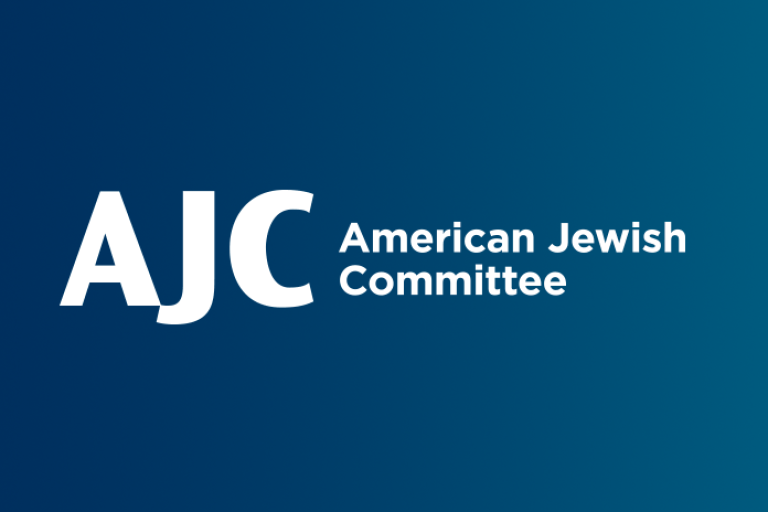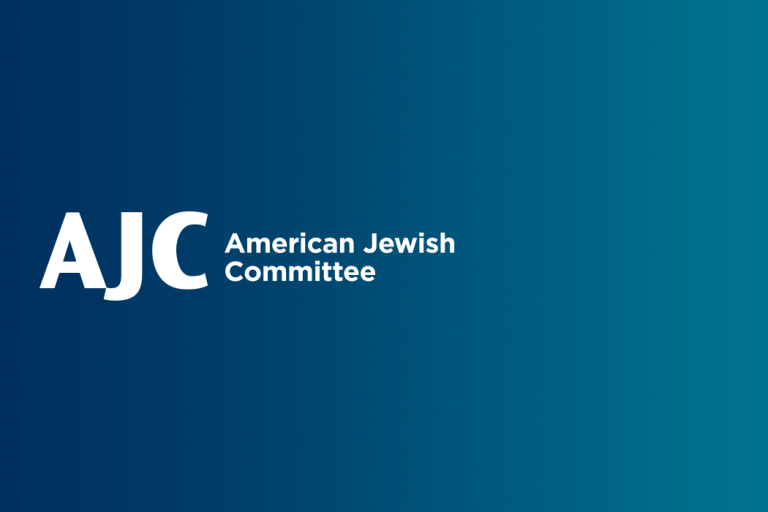March 27, 2018 — Warsaw, Poland
This piece orginally appeared in Wyborcza.
A year ago, over 500 guests from Poland, the U.S., and other countries met at the Polin Museum to celebrate the opening of the new Warsaw-based American Jewish Committee office -- AJC Central Europe.
In a letter addressed to the audience Polish President Andrzej Duda wrote: “I can see the depth of symbolism in the fact that today`s ceremony coincides in terms of the timing with the launch of NATO forces presence in our country. In the period when Poland, having regained her sovereignty after the collapse of the communist regime, strived to join the North Atlantic Treaty Organization, the American Jewish Committee proved to be our valuable ally.… I also consider it meaningful, that this gala takes place in the edifice of the amazing Museum of the History of Polish Jews. This institution is crucially important for preserving the truth about the common history of both our nations. …”
Opening an office in Warsaw exemplifies AJC’s longstanding engagement in dialogue and support for democratic change in the region and expresses hope in Central Europe and Poland’s role on the international arena, also in the context of friendly relations with Israel. Supporting the accession to NATO of Central European countries; encouraging the efforts of the former Soviet Union countries to achieve independence; cooperating with the Polish government in creating a commemoration site at the former death camp in Bełżec; and publishing—in cooperation with our partner organization Forum for Dialogue—the book Difficult Questions in Polish-Jewish Dialogue are just some examples of AJC’s engagement in Central Europe.
For the AJC members, many of whom have Polish roots, the words of the Polish President, spoken in the presence of government representatives, diplomats, the Catholic Church, important non-governmental institutions and, importantly, representatives of the reviving Jewish community in Poland, were of great importance.
Today, a year after the opening of the office, in the midst of the crisis caused by the Act on the Institute of National Remembrance, these words resonate with special strength.
The history of Polish-Jewish relations is not black and white. Tragic and complicated history of Poland does not make these relations easier. AJC has repeatedly – sometimes against the tide of opinion in some Jewish communities in the U.S. and elsewhere – expressed understanding of the sensitivity with which Poles look at history, when harmful and untrue suggestions that Poland or Poles as a nation are responsible for the Holocaust occurred. This does not mean, however, that AJC can consent to limiting the historical debate in a one-sided way, or to remain silent when false narratives are spread. And so it should be called when the personal experience of many Polish Jews and their descendants shows that the simplified, idealized vision of history that has dominated the country recently is not true.
Promoting such a vision of history has serious consequences. On the one hand, it makes the Jewish side even more determined to recall the events, in which Poles played a disgraceful role. On the other hand, the heroism of Poles and the suffering they endured during World War II is sometimes diminished or treated as less important.
The recent rise of antisemitism in the public sphere is worrisome not only for the Jewish community of Poland. Questions are being raised about the security of those who visit Poland. Even though Polish authorities condemn antisemitism and xenophobia, they still need to show determination and undertake specific actions to stop the phenomenon of antisemitism that plagues Poland and other European countries.
The Polin Museum of the History of Polish Jews and the Auschwitz-Birkenau State Museum in Oświęcim have become targets of attacks and accusations. Key institutions that provide essential education for both Poles and visitors to the country, whose employees have contributed greatly to shaping a positive image of Poland, proving that it is honestly and openly speaking about the history of Polish Jews and the Holocaust, as described by the President Andrzej Duda a year ago.
Any deterioration of Poland’s relations with Israel and with the United States will have negative consequences for everyone involved. Today, the Polish-Jewish dialogue, built through the efforts of many people and institutions in Poland and abroad -- including AJC -- is under challenge, and it could take years to fix the damage. The only ones who can benefit from the situation are enemies of democracy, freedom, and values of the Western world.
Central Europe is facing many challenges – our region has to answer questions about directions of the European integration, issues of populism or redefinition of the European identity.
We are convinced that our presence in Poland and Central Europe signifies a deep meaning, even if the circumstances in which we celebrate the first anniversary of AJC Central Europe are worrisome.
Just in past decades and over the last year, today we want to be a friend of Poland and other countries of the region It is in this part of Europe where the U.S. and Israel have important allies. Free and democratic countries, where the Jewish community is an integral part of the society have many reasons to be proud, and one of them is its ability to conduct a constructive, open dialogue in which AJC stands ready to participate.
The author is the director of AJC Central Europe office in Warsaw, that celebrates its first anniversary on March 27. AJC Central Europe is dedicated to seven Central European countries: the Czech Republic, Estonia, Hungary, Latvia, Lithuania, Poland, and Slovakia.


